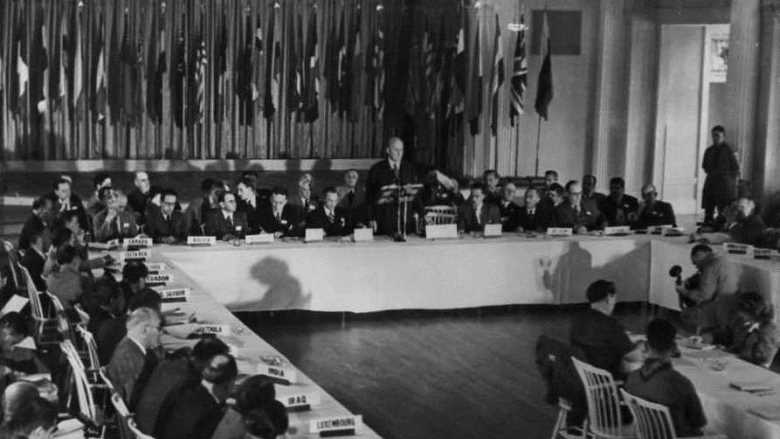-Analysis-
PARIS — Last year was full of surprises across the world: a spike of protectionist fever in the United States at the instigation of Donald Trump, an anti-globalization wave of populism in developed countries bogged down by mass unemployment, Britain's planned exit for from the European Union, worries about a widening inequality gap, migration crises getting worse and worse. And so on. Still, this succession of shake-ups hasn't led to any major and decisive measures to contain the world economy's downward slide.
Political and economic leaders are very much aware of this global laundry list of maladies, but they still haven't been able to find the adequate cures for much of what looks sure to continue in 2017. The "Doctors Diafoirus" of his world will continue to examine the patient and will keep wondering whether they should administer a purge, an amputation or a complete blood transfusion.
The long invoked organization of a new version of the 1944 Bretton Woods Conference to redefine the framework of a global governance is still highly unlikely. There would have to be a conflict as devastating as World War II or an even bigger financial crisis than the one in 2008 for that to happen.
For the time being, the only major international summits planned for the year to come are a G7 meeting in Italy in May and a G20 summit in Germany in July. Otherwise will be the usual sprinkling of meetings at the International Monetary Fund, World Bank, Organisation for Economic Cooperation and Development and World Trade Organization. But this is still mostly immutable ritual. All these international forums, where the crème de la crème of the elites gather, are ineffective in guaranteeing growth, security, not to mention happiness and prosperity to the whole of the international community. Recent history is there to prove it.
The diagnosis, however, is providing some much needed clarity: Global governance is on the wane. The tendency to sit down together and look for international solutions to the great issues of our time — migration, climate change, fight against poverty, financial regulation, tax evasion — founded on very specific values and interests, is about to shatter.
Formed in 2008 as the watchtower of the world economy, during the subprime crisis, the G20 has not been able to reverse this tendency. First of all, because it brings together countries that don't share the same goals. The Anglo-Saxon shareholding and finance capitalism model and the European corporate social responsibility capitalism model don't fit in well with the state capitalism of China, Russia and the Middle East.
Christophe Destais of the French international economics research center CEPII wrote in October noted how this grouping contains a fatal flaw: "The G20 works under the principle of the rotating presidency. Rotating presidencies means rotating priorities. Each country tends to set an agenda that matches its own concerns." In 2014, Australia had chosen to focus on infrastructure spending to restart the world economy. In 2016, China made reform of the international monetary and financial system the top priority. Germany, meanwhile, has put the issues of corporate social responsibility and partnerships with Africa on the table.
With each passing presidency, the G20 agenda becomes overloaded with topics to be treated by heads of states and governments over the course of just two days. Destais also noted that the massive media attention does not serve the ends of long-term solutions. "There is a strong incentive to privilege postures over searching for consensus," he said.
The G20 relies on the work done by other organizations, such as the IMF, the World Bank, the OECD, the Basel Committee or the World Trade Organization. Yet, all these organizations also have diverging interests and sometimes compete or are jealous of one another. In addition, the IMF and the World Bank are still under the thumb of their main shareholder, the U.S., which is now facing competition with similar institutions created by emerging economies under China's leadership. The World Trade Organization meanwhile is facing major difficulties in modernizing its mid-1990s regulation system, and the chances that a real breakthrough can be made at the December meeting in Argentina are very slim indeed.
And then, on top of all these obstacles, comes the Donald Trump mystery. The next U.S. President didn't fail to castigate the World Trade Organization and even threatened to pull out of it. Observers get lost in speculation over his upcoming decisions, be it on trade or on financial regulation. His rhetoric goes very much against the grain of the G20's and WTO's work of the past decade.
As a matter of fact, because of the German general election in September, Chancellor Angela Merkel moved the G20 meeting to the summer. Following Donald Trump's inauguration on Jan. 20 and the French presidential elections in the spring, there won't be a lot of time to prepare for the summit. As one senior official at the French foreign ministry admits: "2017 is going to be a particularly complicated year."
See more from Opinion / Analysis here






